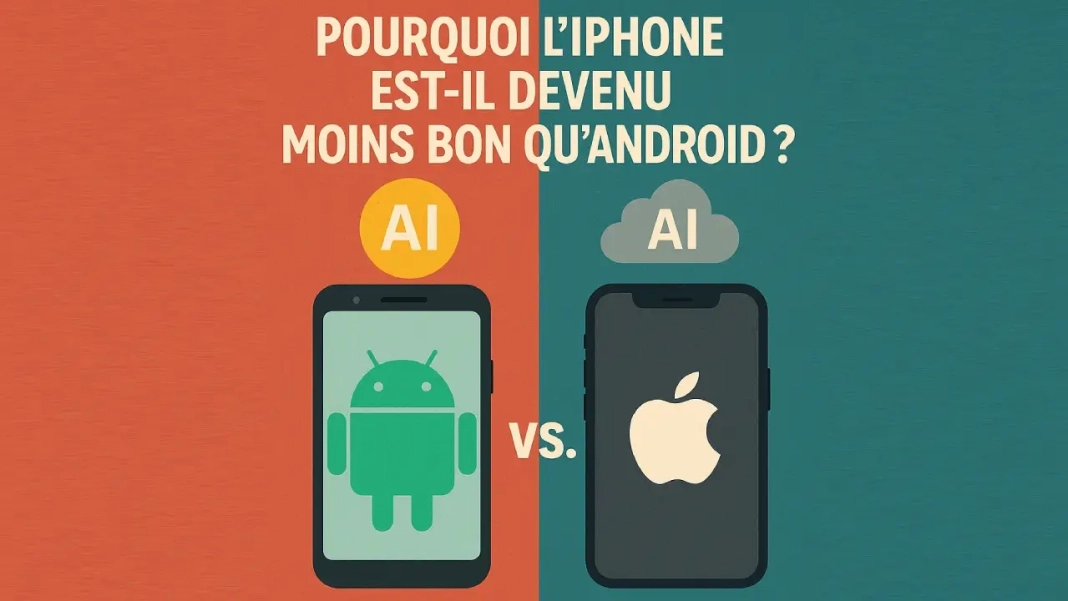By 2025, the gap between the iPhone and Android smartphones has widened—this time not in Apple’s favor. The turning point? The integration of artificial intelligence (AI) into mobile operating systems. Long considered the benchmark for smooth performance and premium hardware, Apple now appears to be trailing behind the advancements made by Google and its partners.
The most striking shift has been the central role that integrated AI plays in users’ everyday experiences. On Android, Google’s conversational AI, Gemini, enables more natural, intuitive, and contextual interactions. Gemini is embedded directly into Android’s apps and services: managing emails, drafting messages, helping with planning, and even offering personalized recommendations based on what users show through their camera or screen.
On Apple’s side, Apple Intelligence has struggled to gain traction. Despite a sleek interface and some useful integrations—such as within Safari or the Mail app—its scope remains limited. Siri, Apple’s longtime voice assistant, has seen little evolution and now relies heavily on outsourcing to ChatGPT, a solution that works well but underscores Apple’s lack of native innovation. Features are released slowly and adopted by very few. The promise of seamless AI integration still feels largely unrealized.
Apple emphasizes a “safer” AI—one that protects user privacy and runs primarily on-device. While commendable, this approach inevitably slows the rollout of features comparable to those already available on Android. Google, meanwhile, also works toward local execution but benefits from a significant lead in language models and cloud-based power.
Take image generation, for instance: Apple Intelligence’s capabilities are heavily restricted by filters that limit creative potential. The result? Users find these tools underwhelming or even frustrating, and often abandon them altogether.
Android, Still the Champion of Customization and Openness
Beyond AI, Android continues to lead in areas it has long dominated: more customization, a wider price range, broader smartwatch compatibility, and the freedom to install third-party apps and services. Gemini is now deeply integrated across Google’s ecosystem—from smartphones to productivity tools to the cloud—creating a seamless and consistent experience across platforms.
Google may have stumbled at first with Bard, but it rebounded with Gemini 2.5—a powerful and efficient AI now built into the latest Android devices. Multimodal features, real-time responses using the camera or screen sharing, and precise contextual understanding are transforming how users interact with their phones.
In this environment, Apple’s aggressive marketing around Apple Intelligence feels out of sync with the pace of AI innovation elsewhere. The company’s emphasis on security and privacy is noble, but it’s no longer enough to justify the perceived lack of innovation.
Even longtime Apple fans—those deeply invested in the Apple ecosystem (iPhone, Apple Watch, iPad, Mac)—are beginning to feel limited. Some, like the creator of the video this article references, now admit to relying more on their Android-powered Pixel for day-to-day and professional tasks, citing the increasingly essential role of integrated AI.
Is It Time to Switch to Android?
The debate between Android and iOS is no longer a matter of loyalty. In 2025, switching platforms has become easier than ever thanks to cloud services and streamlined data migration tools. The real question now is: What kind of AI do you want by your side? One that supports you in a fluid, proactive, and personalized way—or one that remains confined to a few scattered features?


